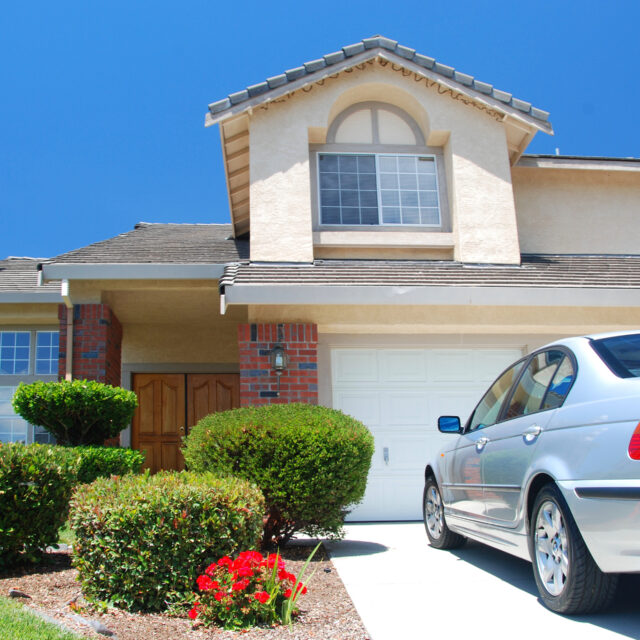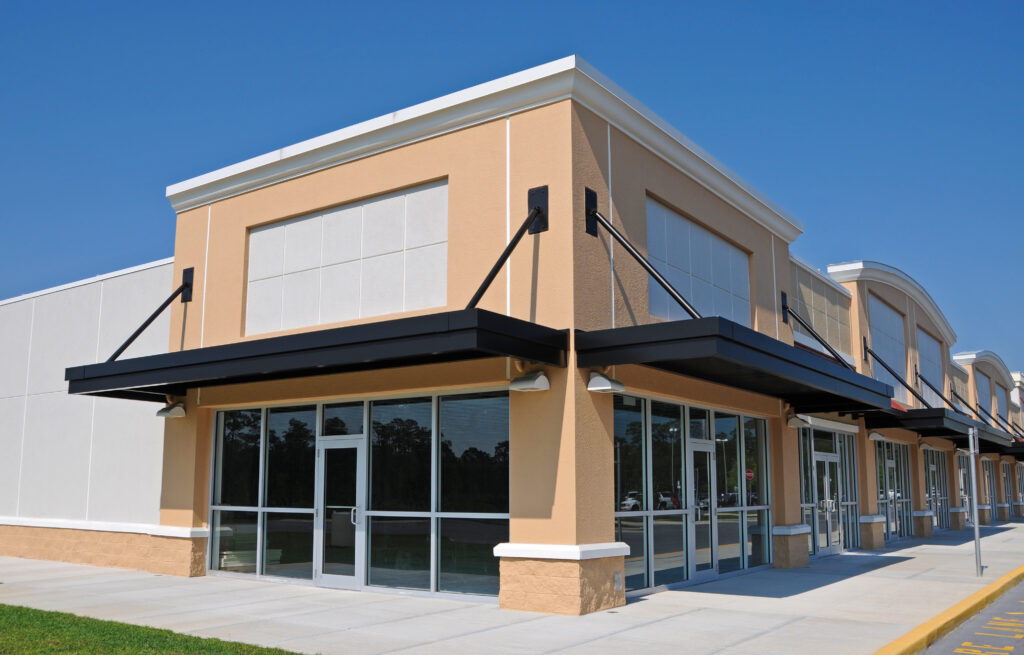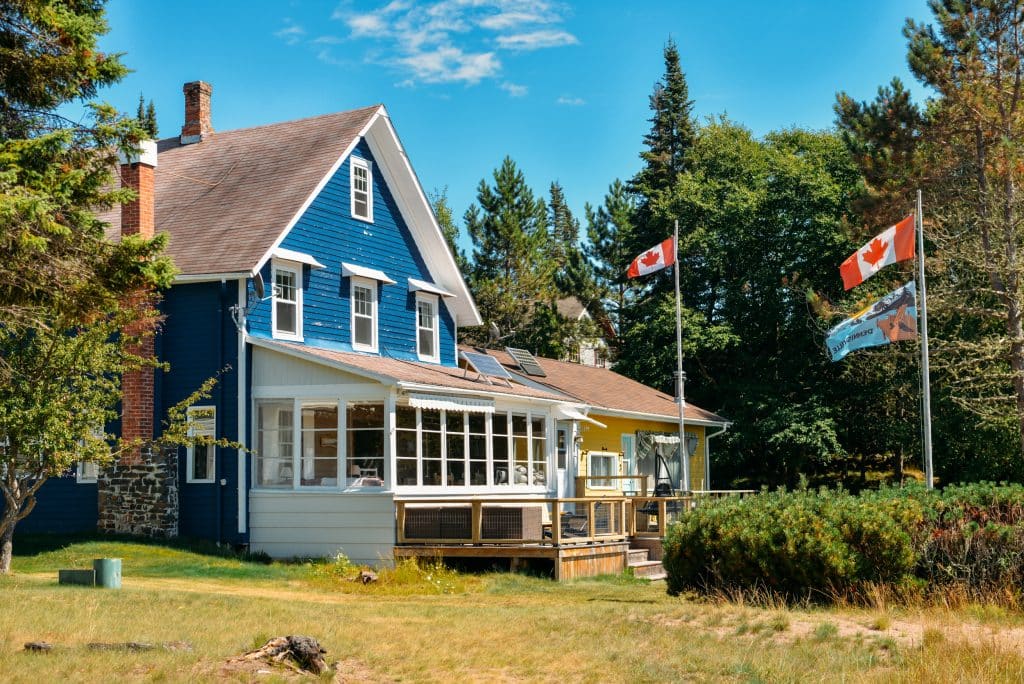Home Insurance
If you’re looking for home insurance in Carleton Place, our team at CP Insurance is ready to assist you in finding a policy that provides you with the most protection for you and your family.

Customized Insurance Solutions
Whether you’re already covered by a home insurance policy or are in the process of acquiring one for a new property, our expert brokers can help you find coverage that suits your needs. When you schedule an appointment with our team, we take the time to get to know you and your family’s home. Factors such as the type of your property, its size, value and location all help us understand the right customized solutions that will work best for your needs.
Our team will take care of all the rate and policy shopping for you, presenting you with terms we’re happy to explain in detail. We aim to equip you with the necessary knowledge to make an informed decision that protects your greatest asset and family as you intend.

The Right Coverage for Your Home
When purchasing home insurance in Carleton Place, we believe in making the process smooth and hassle-free for you. Our dedicated team of experts is here to assist you every step of the way. While some insurers may provide you with a standard policy, it’s important to note this is only suitable for some homes. That’s why speaking to our brokers is essential because the exact details of your policy will depend on the coverage amount you choose.
Our friendly and knowledgeable team will ensure you clearly understand what is covered in your plan and discuss whether additional add-ons are necessary to provide you with complete peace of mind.

Bundling Options to Save More
At CP Insurance, our dedicated team is committed to helping you save money on your home insurance policy. We go above and beyond to explore all available options to ensure you get the best deal possible. One strategy we employ is bundling multiple policies, often resulting in substantial savings. Our team will carefully assess your needs, consider a variety of bundling opportunities, and take advantage of any discounts offered by insurers.
We have been proudly serving our local community for decades, providing them with peace of mind by protecting what matters most – their homes, vehicles, cottages, farms, and, above all, their families.
Frequently Asked Questions
We understand that navigating home insurance policies in Carleton Place can be filled with questions, which is why we’re here to provide you with reliable guidance and support backed by numerous years in the industry.
The cost of home insurance in Ontario can vary depending on various factors. It’s difficult to provide an exact cost without specific details about your property and insurance needs. Here are some key details that can influence the price:
- Location: Insurance companies consider the location of your home, including the neighbourhood and proximity to potential risks such as flood zones, high-crime areas, or areas prone to severe weather events.
- Replacement Value: The value of your home and its contents plays a significant role in determining the cost of insurance. Higher-value properties typically require higher coverage limits, resulting in increased premiums.
- Dwelling Features: The age, size, construction materials, and overall condition of your home can impact the cost of insurance. Features such as updated electrical systems, plumbing, and security measures (e.g., alarm systems) may lead to lower premiums.
- Coverage Options: The extent of coverage you choose affects the cost. Basic coverage typically includes protection against fire, theft, and liability, while additional coverage options like water damage, sewer backup, or specific endorsements can increase the premium.
- Deductible Amount: A deductible is the amount you pay out of pocket before the insurance coverage kicks in. Choosing a higher deductible often leads to lower premiums, while a lower deductible means higher premiums.
- Claims History: Your past claims history, especially recent claims, can influence the insurance cost. If you have a history of multiple claims, insurers may consider you a higher risk, resulting in higher premiums.
Home insurance provides financial protection for your home and belongings in the event of unforeseen circumstances or damages. Coverage can vary depending on the specific policy and insurance provider. Here is a detailed explanation of what home insurance typically covers:
- Dwelling Coverage: This aspect of home insurance protects the structure of your home, including the walls, roof, foundation, and attached structures like garages or decks.
- Personal Property Coverage: This coverage extends to your personal belongings inside the home, such as furniture, appliances, electronics, clothing, and valuables.
- Liability Coverage: Liability coverage provides financial protection if someone is injured on your property or if you accidentally damage someone else’s property.
- Additional Living Expenses: If your home becomes uninhabitable due to covered damages, home insurance can help cover the costs of temporary accommodation, meals, and other necessary living expenses while your home is being repaired or rebuilt.
- Medical Payments: Home insurance typically includes coverage for medical expenses if someone is injured on your property, regardless of whether you are legally liable.
- Other Structures Coverage: This aspect of home insurance protects structures on your property that are not attached to the main dwelling, such as fences, sheds, or standalone garages.
To fully understand the scope of coverage and any exclusions, your CP Insurance broker will discuss all the relevant specifics with you when choosing an insurance policy. We can answer your questions and ensure your home insurance policy in Carleton Place meets your needs.
Home insurance for condos works differently compared to traditional home insurance for standalone houses. When you own a condominium, you typically have two layers of insurance coverage:
- Condo Corporation’s Master Policy: The condo corporation or homeowners association (HOA) carries a master insurance policy that covers the building’s structure, common areas, and liability for the entire condominium complex. This policy is typically funded through your monthly condo fees. The master policy generally protects the exterior walls, roof, elevators, hallways, and common amenities.
- Individual Unit Owner’s Policy (Condo Insurance): As a condo owner, you are responsible for insuring your personal belongings, any improvements or upgrades you have made to your unit, and certain aspects not covered by the master policy. This insurance is known as individual unit owner’s policy or condo insurance.
Here’s a breakdown of how condo insurance works for individual unit owners:
- Personal Property Coverage: Similar to traditional home insurance, condo insurance covers your personal belongings within the unit, including furniture, appliances, clothing, and electronics.
- Additional Living Expenses: If your unit becomes uninhabitable due to covered damages, condo insurance can help cover the costs of temporary accommodation, meals, and other living expenses during the repairs.
- Liability Coverage: Condo insurance includes liability coverage to protect you if someone is injured within your unit and you are found legally responsible.
It’s essential to review the condo corporation’s master policy and understand its coverage limits and exclusions. This helps you determine the appropriate level of condo insurance coverage you need as an individual unit owner.
Home insurance is not mandatory by law in Ontario. However, if you have a mortgage on your home, your lender will typically require you to have home insurance as a loan condition. The lender wants to protect their investment and ensure that the property is adequately covered in the event of any damages or loss.
While home insurance is not legally mandated, it is highly recommended for homeowners in Ontario. Home insurance provides financial protection against a wide range of risks, including fire, theft, liability, and damage caused by severe weather events. It helps you repair or replace your home and belongings in case of unexpected events, reducing the financial burden on you and your family.
Additionally, even if you own your home outright without a mortgage, having home insurance is still beneficial. It safeguards your investment and provides peace of mind knowing that you have coverage in case of unforeseen circumstances.
It’s important to note that while home insurance itself is not mandatory, certain aspects of insurance may be required by law or other entities. For example, if you live in a condominium, the condominium corporation may require you to carry a certain level of insurance coverage as specified in their bylaws.
Yes, the age of a house can impact home insurance in several ways. Insurance companies consider the age of a home as a factor when determining the cost and coverage of a policy. Here’s how the age of a house can influence home insurance:
- Replacement Cost: Older homes may have unique architectural features, materials, or construction methods that can increase the cost of repairs or rebuilding in the event of damage. Insurance companies may take this into account when calculating the replacement cost coverage for the dwelling.
- Electrical and Plumbing Systems: Insurance providers often assess the age and condition of a house’s electrical and plumbing systems. Outdated or deteriorating systems can increase the risk of fire or water damage, potentially impacting the insurance premium or eligibility for coverage. Older homes may require updates or improvements to meet current safety standards.
- Maintenance and Upkeep: The maintenance and upkeep of a house can also impact insurance. Insurance companies may consider the overall condition of the property, including the roof, foundation, and exterior, when determining the risk profile. A well-maintained and updated older home may be viewed more favourably than one with deferred maintenance or known issues.
- Potential Risks: Some older homes may have specific risks associated with their construction materials, such as lead paint or asbestos. Insurance companies may assess these factors when determining coverage and premiums, as they can pose potential health and liability concerns.
It’s important to note that not all insurance companies assess the age of a house in the same way, and their underwriting guidelines may differ. Factors such as location, claims history and individual risk assessments also play a role in determining the cost and coverage of home insurance.
The difference between replacement cost and actual cash value is an important concept to understand when it comes to home insurance. Here’s an explanation of each term:
- Replacement Cost: Replacement cost refers to the amount of money it would take to replace or repair your damaged or destroyed property with a new item of similar quality and kind at current market prices. When you have replacement cost coverage, your insurance policy will reimburse you for the full cost of replacing the damaged property without deducting for depreciation.
- For example, if your television is stolen, replacement cost coverage would provide the funds to purchase a brand-new television of a similar make and model, regardless of the age or condition of the stolen one.
- Actual Cash Value (ACV): Actual cash value is the value of your property or belongings after accounting for depreciation. Depreciation takes into consideration factors such as age, wear and tear, and market value decline over time. With actual cash value coverage, your insurance policy will reimburse you for the current value of your damaged or destroyed property, taking depreciation into account.
- Using the same example of a stolen television, actual cash value coverage would factor in the age and condition of the stolen television when calculating the reimbursement amount. Since televisions generally lose value over time, the reimbursement amount for an older television would be lower than its original purchase price.
It’s important to note that actual cash value coverage typically results in a lower reimbursement amount compared to replacement cost coverage. Opting for replacement cost coverage is advisable if you want to receive full compensation for damaged or destroyed items without accounting for depreciation. However, replacement cost coverage usually comes at a higher premium than actual cash value coverage.
Yes, in most cases, you can transfer your home insurance policy when you move to a new home. However, the specifics of transferring your policy may vary depending on your insurance provider and the new property you are moving to. Here are a few important points to consider:
- Contact your insurance provider: As soon as you know you are moving, get in touch with our team. We’re happy to guide you through the process and provide you with the necessary information on the next steps and updates to your policy.
- Coverage for the new property: Your existing policy may not automatically extend coverage to your new home. Not to worry, as we’ll let you know whether your current policy will provide adequate coverage for the new property. For reference, factors such as location, size, and specific risks associated with the new home may affect your policy terms and premiums.
- Timing: It’s crucial to coordinate the timing of your policy transfer with the sale or purchase of your homes. We’ll work with you to ensure there is no gap in coverage during your move.
- Policy adjustments: Moving to a new home may require adjusting your policy’s coverage limits, deductibles, and endorsements. Your broker will discuss these details with you to make any necessary modifications to your policy.
- Premium changes: The cost of your home insurance may change when you move. Factors such as the location of the new property, its construction, and the claims history in the area can influence the premium. If you are considering a policy or insurance company change, we can obtain a quote for your new home and keep it within your budget.
- Considerations for selling your old home: If you are selling your previous home, you may need to maintain your existing policy until the sale is complete. This ensures that your property remains protected during the selling process. We’re here to help answer any questions you may have or make the necessary changes on your behalf so you can worry about your next chapter and not get bogged down with confusing terms and conditions.
I have been using Joan Carruthers of CP Insurance for all my insurance related needs since I was 18. Joan has many years of industry experience and goes above and beyond for her clients. She is not only responsive and caring but also advises her client with a true sense of what’s best for them and their situation. I would highly recommend switching to Joan at CP Insurance, whether you are in the market for new insurance or simply looking for a change.
Nicole Johns
Great people who are always willing to help you!!!
Debra Rowan
Give them your details, and you get a quote easily and fast. For faster help, ensure you have your Claims Experience Letter ready. Detailing all of your claims, etc.
Chris Eh
Other Insurance Services
Whether you’re searching for car insurance in Carleton Place or additional policies for your home or business, CP Insurance can help. Our team provides knowledge and expertise in various types of insurance, ensuring you’re covered in all areas.

Home Insurance
Securing your most valuable asset is of utmost importance. At CP Insurance, we offer comprehensive home insurance policies that go beyond mere protection. Our policies provide complete assurance, covering not only the dwelling itself but also personal property and additional living expenses. With our expert team of insurance brokers, we ensure homeowners can find a policy that suits them best.

Business Insurance
Business insurance is essential for any business to protect against potential financial losses from unexpected events, such as property damage, liability claims, and theft. It can safeguard a company’s assets and help it to recover from unforeseen events, minimizing risks and protecting its bottom line. CP Insurance offers a range of business insurance policies tailored to meet the unique needs of different businesses in various industries.

Auto Insurance
CP Insurance offers comprehensive car insurance policies that provide protection against a wide range of risks. We offer standard insurance options and additional coverage to ensure that our clients have the protection they need in any given situation. Our brokers are committed to providing affordable and reliable car insurance coverage to all clients, giving them peace of mind on the road.

Cottage Insurance
As a home away from home, you want to safeguard your cottage in the best way possible. Cottage insurance is vital for protecting your property and can include customized coverage options depending on where your cottage is located and when and how often it is used. We can find comprehensive policies that have coverage for various structures and personal belongings, such as boats, ATVs, and furniture.

Farm Insurance
Comprehensive farm insurance is vital in preserving the substantial investments farmers make in their operations. At CP Insurance, we understand the importance of protecting your farm. Our policies offer extensive coverage for buildings, machinery, livestock, and crops. With our tailored approach, we customize each policy to suit the specific needs of your farm operation, providing robust financial protection. Trust CP Insurance to help safeguard your farm’s future.

Boat Insurance
Boat insurance is vital for protecting your vessel from unexpected risks and ensuring peace of mind on the water. With our sister company Portside Marine Insurance, finding the right policy becomes effortless. Their expertise and tailored approach empower you to secure comprehensive coverage while safeguarding your boat and passengers so that you can navigate waterways with confidence.
No matter what life throws your way, you will be safeguarded with an insurance policy that you can count on.
Contact us at CP Insurance today to discuss how we can help you get the coverage you need to protect your greatest investments.
CP Insurance Brokers
Serving the Carleton Place community’s insurance needs.
CP Insurance is your trusted broker in Carleton Place, offering a range of insurance solutions backed by years of expertise.
Contact us
92 Bridge St Suite 100,
Carleton Place, ON
K7C 2V3